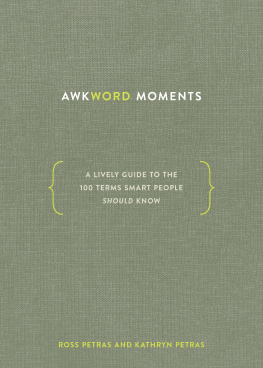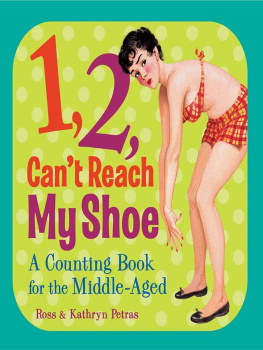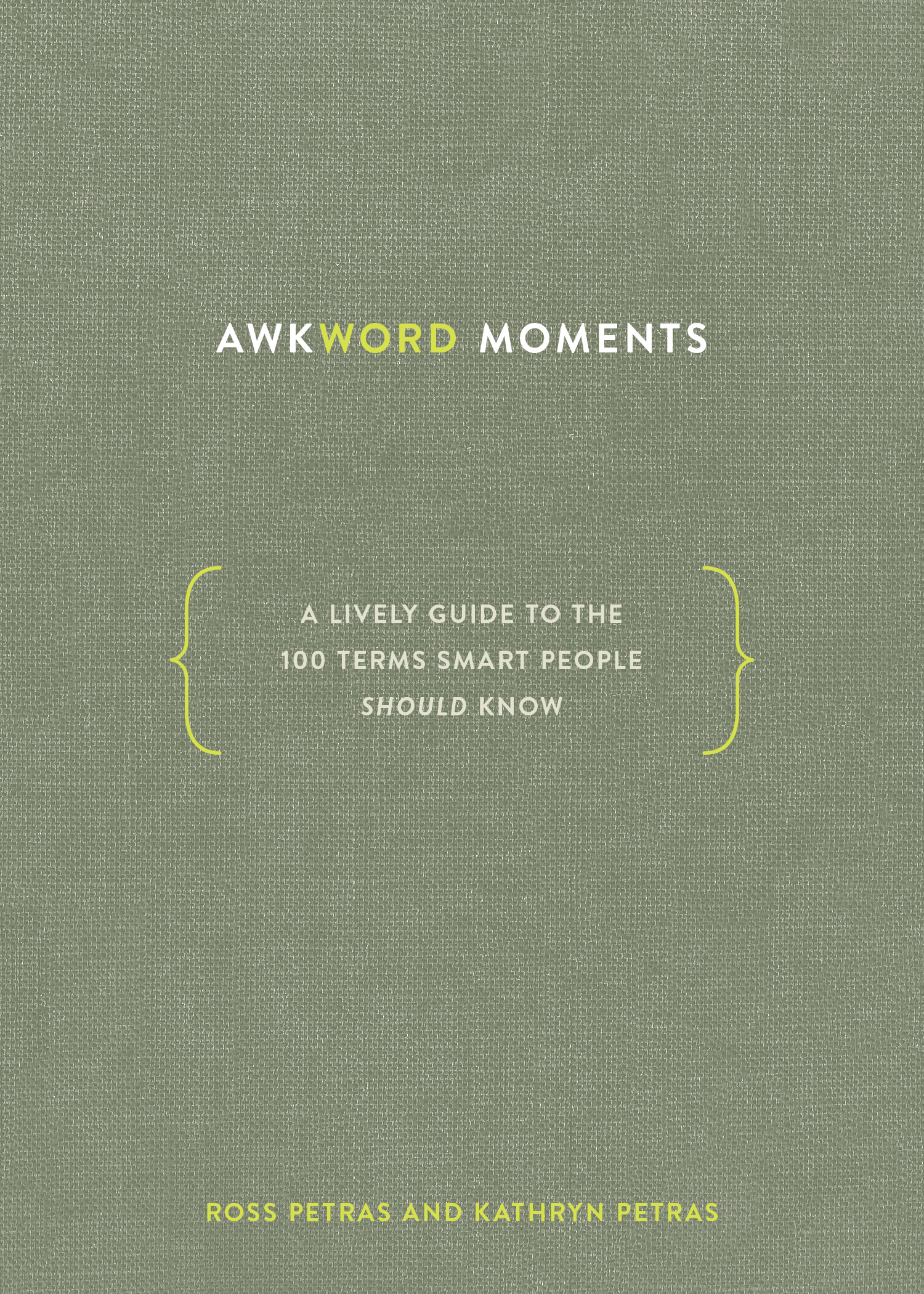All rights reserved.
Published in the United States by Ten Speed Press, an imprint of Random House, a division of Penguin Random House LLC, New York.
Ten Speed Press and the Ten Speed Press colophon are registered trademarks of Penguin Random House LLC.
Library of Congress Cataloging-in-Publication Data is on file with the publisher.
INTRODUCTION
What is it that we humans depend on? We depend on our words. Our task is to communicate experience and ideas to others. We must strive continually to extend the scope of our description, but in such a way that our messages do not thereby lose their objective or unambiguous character. We are suspended in language in such a way that we cannot say what is up and what is down. The word reality is also a word, a word which we must learn to use correctly.
NIELS BOHR, PHILOSOPHY OF SCIENCE
As Nobelist Niels Bohr noted, we depend on our words. Thats how we communicate. But words can play tricks on us. Daily life can be an intellectual minefield, full of awkward, word-related moments. Your boss makes a joke about Schrdingers cat, which is something youve heard of but youre a little vague about what exactly happened (or didnt happen) with that cat. And what was the point of the whole cat thing anyway? Or youre reading a New Yorker article that explains, Solecism slipped into solipsism into full-blown narcissistic projection. An excellent pointif youre sure what solecism meansor, for that matter, solipsism.
There are so many things to know nowadays to keep up in conversations, so many arcane (and not so arcane) words that many smart people either dont know at all but have heard about, or almost know or think they know but would be hard pressed to explain if put on the spot and asked to do so. Thats why its easy to get a little nervous, a little panicky, and a little self-conscious. And thats why we wrote this bookto help people deal with this very common problem.
In an interview with Esquire, writer Gore Vidal snidely commented about his fellow writer Norman Mailer: For a writer, memory is everything. But then you have to test it; how good is it, really? Whether its wrong or not, Im beyond caring. It is what it is. As Norman Mailer would say, Its existential. He went to his grave without knowing what that word meant.
Maybe Vidal is exaggerating, but one thing is certain: a lot of us use words that were not completely sure aboutand think (hope) that we got right. Seth Stevenson in Slate wrote about the words that erudite people kinda sorta know but kinda sorta dont, dubbing these words ones bubble vocabulary. These are the words that, if you were asked directly What does this mean? would make you hem and haw and try to change the subject. Like syllogism. Or solipsism. Or trope. Or, yes, existentialism.
Awkword Moments gives readers a brief rundown on words smart people should knowfrom the worlds of science and the arts to philosophy, and from broader topics like quantum physics and ontology to smaller, more specific ones like Schrdingers cat. It covers the Latin phrases we hear and read (prima facie, sui generis, and the like) as well as those that have entered our vocabularies from other languages (weltschmerz, ennui, wabi sabi).
Its a diverse collection, but they all have that slippery I think I know that, but thing in common. We culled these words from a variety of sources, including different dictionaries Most Often Looked-Up, lists of the most commonly misunderstood words and concepts, as well as stories and lists compiled by newspapers like the Washington Post and the NewYorkTimes. Some were chosen because readers complained about them (I dont think I should need a dictionary to read your paper, one irritated reader wrote to the Post; other irritated readers told him to suck it up, buttercup in the comments because they didnt want the paper dumbed down). Others were chosen because they frequently appear in articles and conversation (correctly and incorrectly), and still others because we had always wondered about them ourselves.
And at the end of collecting and culling and talking to people and asking what they considered part of their bubble vocabularies, we wound up with one hundred words that smart people should know or think they know but (often secretly) dontthe ones you might slip into conversation, then wonder if youve actually used them correctly.
Obviously, a book of one hundred words doesnt begin to include all the words that should make the list, but it does pretty much cover the top one hundred in the lists we just mentioned. We also wanted to go beyond just defining the word. Words are much too fun to be consigned to a simple vocabulary list with definitions. So Awkword Moments is also a quick examination of the concepts behind the words (sometimes a crash course in philosophy, other times in politics), their often fascinating etymologies, their use and misuse throughout history, weird and wonderful anecdotes, and often surprising origin stories.
You very probably know many of these words alreadybut take a second look: do you really know them? We did a little experiment with one of the more common words in the book, quantum. We walked around a university campus asking friends, faculty, and random individuals if theyd mind defining the word for us and using it correctly in a sentence. Very few could. Everyone had a vague (often incorrect) idea of what the word meant. (Try taking a little test yourselfflip through the book and pick at random a few words that you think you know well and see how confidently you can use them in a sentence.) Then there are words, like hermeneutics, that are surprisingly common in print but that most of us are a little (or a lot) shaky on, except for the journalists who use them in their articles and some philosophers who actually know what they mean. This book covers both baseswords we use but have no idea what they really mean, and words we encounter in conversation or print that we have absolutely no idea what they really mean.
To quote one of our favorite internet word memes, Sometimes I use big words I dont really understand in an effort to seem more photosynthesis.
This book will help you be more photosynthesis than ever.
AD HOMINEM
An internet trolls favorite way to argue?
Ad hominem, of course!
WIRED
Ad hominem is one of those pesky phrases you might hear a fair amountbut you arent quite sure exactly what it means. What specifically makes an attack, argument, or trolling ad hominem? Lets start with the etymology. Ad hominem is a loan phrasea term taken directly from another language, in this case Latin, and used as is in Englishformed of the prefix ad-, meaning to, toward, near, or at, and hominem, the accusative form of homo, meaning person. So it literally means to a personwhich doesnt really convey much on its own, does it?
The key is putting it into its proper context, that of an argument. The to a person aspect of








